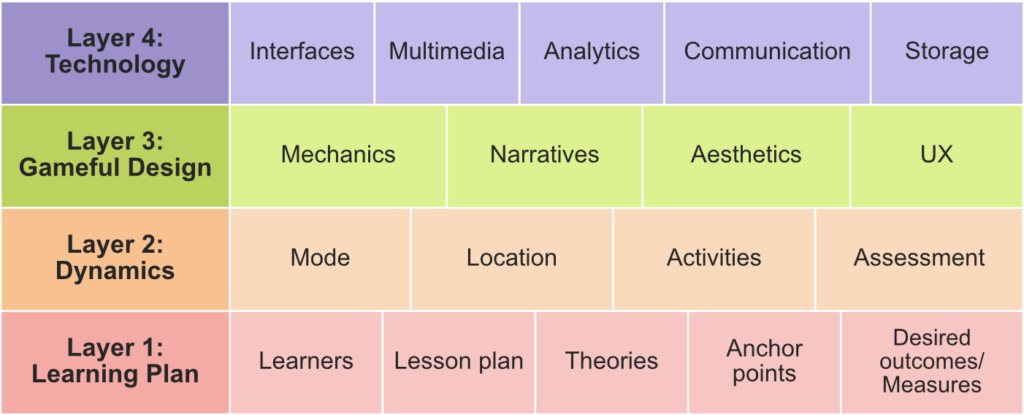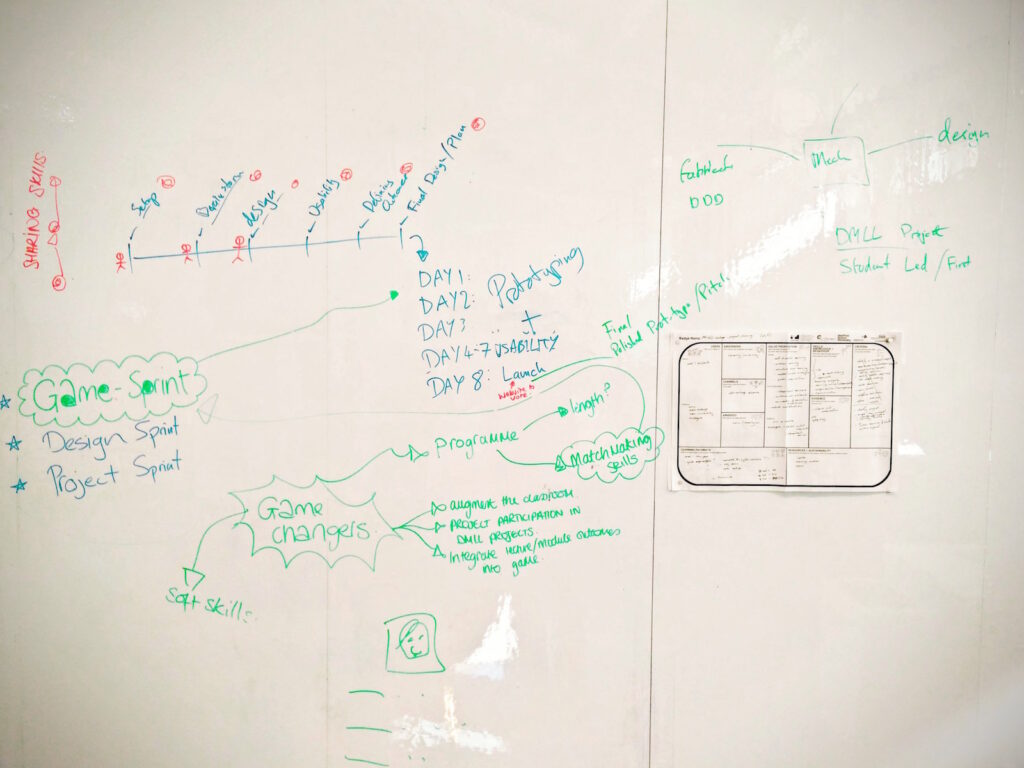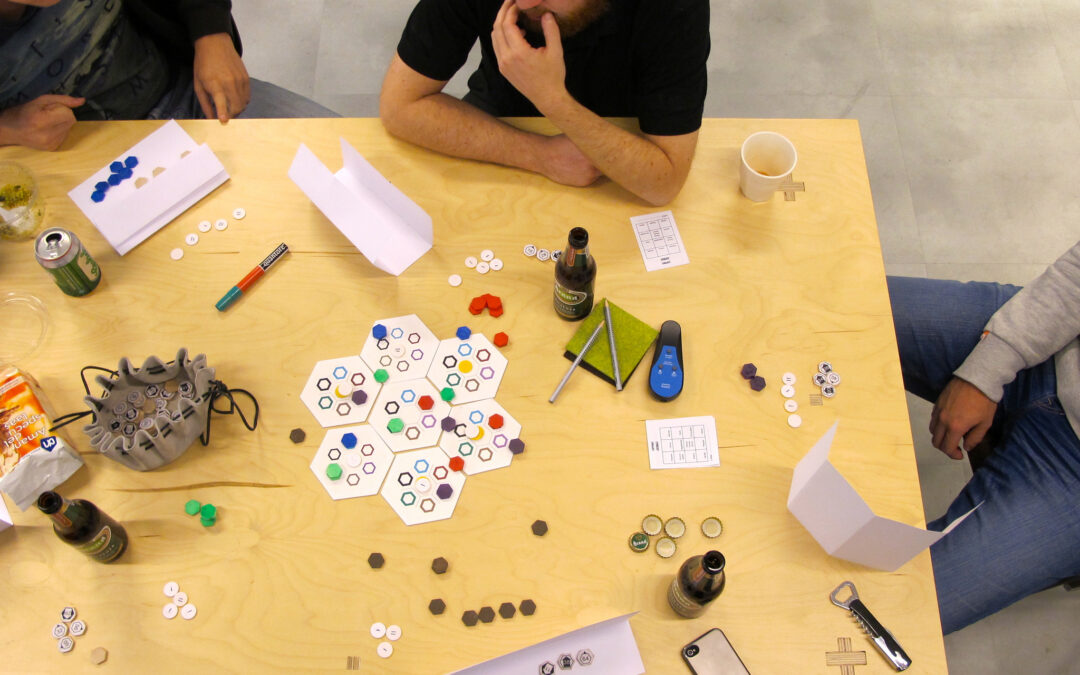This week, during a brainstorming session in the DMLL with my good friend and colleague Kate Green, we sat down on a couple of bean bags in our lab and started to try and imagine what an open games design programme might look like. We both wanted to get stuck into developing an open online programme, with its foundations built on openness (obviously), community, and a strong sharing ethos. We had the seed of an idea in the form of a design sprint and open course mash-up, now it was time to develop this into a full programme.
I’d been noodling around an idea to use the lab’s large ‘café’ space for some kind of extended workshop/sprint session, but had been waiting for the right project to come along that might warrant such a setup. If we were going to host a large-scale practical workshop, over say five days, we’d need to ensure that we had a theme worth investing in. One with enough participants to make a workshop sustainable over a number of days.
Kate and I had been eager to develop a new open class, one that we would have the freedom to design from the ground up, especially considering there are no other open classes like it currently running at Coventry University. Then a potential opportunity presented itself in the form of an ongoing conversation between Sylvester Arnab (Reader in Games Science) and Helen Keegan (DMLL Principal Project Lead), who had been discussing the idea of establishing some kind of gamification project in the lab.
The project in question would focus on a series of videos presented by a collection of engaging characters, such as ‘Dr. Game’, who would explain a variety of game design concepts for anyone interested in designing their own games or gamifying an activity. The videos would form part of a wider, non-linear collection of design resources. The materials would be quite ‘meta’ and abstract in nature, relying more on viral dissemination over a more traditional course-based delivery.

So there was the potential to establish a programme around Sylvester and Helen’s initial conversations. This seemed like the perfect starting point to work from, something we could adapt to form a strong foundation for an open programme.
Jumping back to this week’s bean bags and brainstorming, we combined the themes of educational game design, an open course framework, an open community, and a practical prototyping workshop. Using these we started to build a narrative that would run through our programme.

Skills sharing and matchmaking were two important areas we wanted to focus on, established the foundations of an open game design programme, culminating in a 5 day ‘game sprint’. Perfect! We had the bones of a potentially great project, now all we needed to do was flesh it out…

